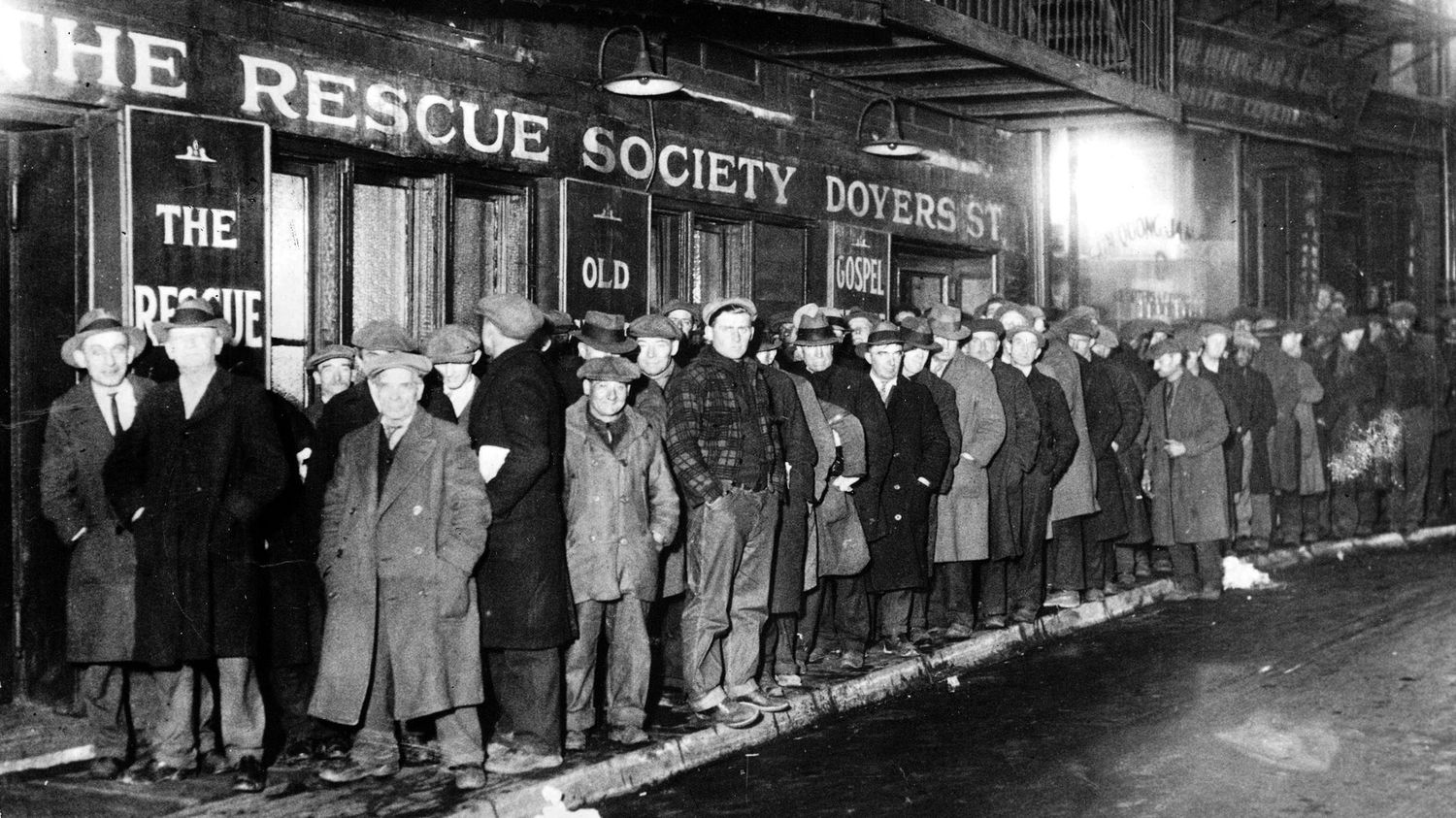
What caused the Great Depression? The Great Depression, a severe worldwide economic downturn, began in 1929 and lasted through the late 1930s. Several factors contributed to this catastrophic event. The stock market crash of October 1929, often referred to as Black Tuesday, marked the beginning. Bank failures followed, wiping out savings and reducing consumer spending. Additionally, a severe drought in the Mississippi Valley led to the Dust Bowl, devastating agriculture. Trade policies like the Smoot-Hawley Tariff exacerbated the situation by stifling international trade. Unemployment soared, and many families faced extreme poverty. Understanding these causes helps us grasp the magnitude of this historical crisis.
Key Takeaways:
- The Great Depression, a global economic crisis in the 1930s, led to widespread poverty and unemployment, but also sparked innovations like Monopoly and the electric guitar.
- Government intervention, social safety nets, and lessons on financial regulation from the Great Depression continue to shape economic policies and welfare systems today.
The Great Depression: An Overview
The Great Depression was a severe worldwide economic downturn that took place during the 1930s. It had far-reaching effects on both developed and developing nations, leading to widespread poverty, unemployment, and social upheaval. Here are some fascinating facts about this critical period in history.
- The Great Depression began in the United States after the stock market crash on October 29, 1929, known as Black Tuesday.
- By 1933, nearly 15 million Americans were unemployed, which was about 25% of the workforce.
- The global economy shrank by an estimated 15% during the Great Depression.
- Many banks failed during this period, with over 9,000 banks closing their doors between 1930 and 1933.
- The Dust Bowl, a series of severe dust storms, exacerbated the economic situation by devastating agriculture in the American Midwest.
Impact on Daily Life
The Great Depression drastically altered the daily lives of millions. People faced unprecedented challenges and had to adapt to survive.
- Breadlines and soup kitchens became common as people struggled to find enough food to eat.
- Many families lost their homes and had to live in makeshift shantytowns known as "Hoovervilles," named sarcastically after President Herbert Hoover.
- Bartering became a common practice as cash was scarce.
- Some children had to leave school to work and support their families.
- The birth rate dropped significantly during the Great Depression due to economic uncertainty.
Government Response
Governments around the world took various measures to combat the economic crisis. Some of these actions had lasting impacts on policy and society.
- President Franklin D. Roosevelt introduced the New Deal, a series of programs and reforms aimed at economic recovery.
- The Social Security Act of 1935 was established to provide financial assistance to the elderly, unemployed, and disabled.
- The Works Progress Administration (WPA) was created to provide jobs for millions of Americans through public works projects.
- The Federal Deposit Insurance Corporation (FDIC) was established to protect bank deposits and restore trust in the banking system.
- The Securities and Exchange Commission (SEC) was formed to regulate the stock market and prevent future crashes.
Cultural Impact
The Great Depression also left a significant mark on culture, influencing art, literature, and entertainment.
- John Steinbeck's novel "The Grapes of Wrath" depicted the struggles of a family during the Dust Bowl and became a classic.
- The film "Gone with the Wind," released in 1939, provided an escape for audiences and became one of the most successful films of all time.
- Swing music and big bands gained popularity as people sought affordable entertainment.
- The Federal Art Project, part of the WPA, funded artists to create public murals and other works.
- Radio became a primary source of news and entertainment, with programs like "The Lone Ranger" and "War of the Worlds" captivating audiences.
Global Effects
The Great Depression was not confined to the United States; it had profound effects worldwide.
- In Germany, the economic crisis contributed to the rise of Adolf Hitler and the Nazi Party.
- The United Kingdom experienced high unemployment and poverty, leading to political instability.
- Japan faced economic hardship, which fueled its expansionist policies in Asia.
- In Canada, the economy contracted sharply, and the unemployment rate soared.
- Australia saw a significant drop in exports, leading to widespread economic distress.
Innovations and Changes
Despite the hardships, the Great Depression also led to several innovations and changes that shaped the future.
- The Golden Gate Bridge construction began in 1933, providing jobs and becoming an iconic landmark.
- Monopoly, the popular board game, was created during the Great Depression and became a household favorite.
- The first drive-in theater opened in 1933, offering a new form of entertainment.
- The electric guitar was invented in the early 1930s, revolutionizing music.
- The concept of the supermarket emerged, with the first King Kullen store opening in 1930.
Lessons Learned
The Great Depression taught valuable lessons about economic policy, financial regulation, and social welfare.
- The importance of government intervention in stabilizing the economy became widely recognized.
- The need for social safety nets to protect the vulnerable was highlighted.
- The role of central banks in managing monetary policy was better understood.
- The dangers of speculative bubbles and unregulated markets were acknowledged.
- The significance of international cooperation in addressing global economic challenges was emphasized.
Personal Stories
Many personal stories from the Great Depression highlight the resilience and ingenuity of individuals during tough times.
- Woody Guthrie, the folk singer, traveled across America, documenting the struggles of ordinary people through his music.
- Dorothea Lange's photographs, such as "Migrant Mother," captured the human suffering and became iconic images of the era.
- Eleanor Roosevelt, the First Lady, became a champion for the poor and advocated for social reforms.
- Many people started small businesses or found creative ways to make ends meet, such as selling homemade goods.
- Community spirit and mutual aid flourished as neighbors helped each other survive.
Long-Term Consequences
The Great Depression had long-term consequences that shaped the modern world in various ways.
- The economic policies and reforms introduced during this period laid the foundation for the modern welfare state.
- The experience of the Great Depression influenced future economic theories and policies, such as Keynesian economics.
- The crisis led to significant changes in labor laws, including the establishment of minimum wage and maximum working hours.
- The Great Depression contributed to the eventual outbreak of World War II by destabilizing economies and political systems.
- The lessons learned from the Great Depression continue to inform economic policy and financial regulation today.
Reflecting on the Great Depression
The Great Depression left a lasting mark on history, shaping economies, societies, and policies worldwide. Understanding its causes and effects helps us appreciate the resilience and adaptability of people during tough times. From the stock market crash to the New Deal, each fact highlights the era's complexity and the human spirit's strength.
Learning about this period isn't just about knowing dates and events. It's about recognizing the lessons learned and how they apply to today's world. Economic downturns, government interventions, and social changes all stem from experiences like those during the Great Depression.
By studying these facts, we gain insights into how past generations overcame adversity. This knowledge empowers us to face future challenges with wisdom and courage. Remember, history isn't just about the past; it's a guide for the future.
Frequently Asked Questions
Was this page helpful?
Our commitment to delivering trustworthy and engaging content is at the heart of what we do. Each fact on our site is contributed by real users like you, bringing a wealth of diverse insights and information. To ensure the highest standards of accuracy and reliability, our dedicated editors meticulously review each submission. This process guarantees that the facts we share are not only fascinating but also credible. Trust in our commitment to quality and authenticity as you explore and learn with us.


